
Muse & Mastery
Hosted by Aliya Cheyanne, Muse & Mastery is a digital sanctuary for creative thinkers, makers, and seekers. Each episode explores how we can live, create, and evolve in alignment with our purpose.
Muse & Mastery
Play Therapy, Doodle Noodles & Rebellious Evolution with Rebels Evolve Founder, Malia Segal | Ep. 85
Every once in a while, a conversation comes along that gently unravels the tight knots we've tied around our own healing. My chat with Malia Segal, licensed clinical social worker and founder of Rebellious Evolution and Doodle Noodles Notebooks, was exactly that kind of transformative dialogue.
Malia brings a refreshingly subversive approach to mental health, challenging both the external "shoulds" that society imposes and the harsh internal voices we've internalized. As she eloquently puts it, "Why be your own enemy when you can be your own cheerleader?" Through her work with both children and adults, she demonstrates how healing doesn't have to follow prescribed paths we've been taught, and that healing looks different for everyone.
Ready to embrace your own rebellious evolution? Visit rebelsevolve.com or find Doodle Noodles Notebooks on Etsy. Whether you're seeking empowerment coaching or simply permission to color outside the lines of conventional healing, this conversation reminds us that sometimes the most powerful act of self-care is gentle rebellion. Follow Malia (@thrilla.in.malia), @doodlenoodlenotebooks and @rebels.evolve on IG.
Episode Resources:
- Learn more about EMDR at emdria.org
Related Episodes:
- Retiring Superwoman: Breaking the Chains of Perfectionism ft. Aseanté Renee [REPLAY]
- Reigniting Your Creative Spark After Burnout | Ep. 71 [Malia/Doodle Noodles Mention]
- Back from Hiatus: Adventures, Reflections and Future Plans | Ep. 11 [My Unruly Retreat Experience Recap]
Watch this episode on YouTube!
Theme Music:
She No Dull Beat by Nana Kwabena
Festivities in Belize by RAGE Productions
Enjoy the episode?
- Share it with friends!
- Send a voice note or text!
- Rate & review the podcast!
Follow @museandmasterypod on your favorite SM platforms!
Watch full interviews here on YouTube!
Join me over on Substack!
Check out my favorite brands and snag a discount!
Grab a guided journal here!
Are you a creative, solopreneur or entrepreneur who’d like to be featured on Muse & Mastery? Let me know here!
Hosted by Buzzsprout. See the Buzzsprout - Privacy Policy here.
Hi everyone, welcome back to the show. I'm your host, aliyah Cheyenne, and I'm so excited today to be joined by Malia Siegel. Hi, malia, how are you? Hi, how are you Good? I'm so excited to have you on the show. I was just telling Malia that I wanted to have her on the show. I've wanted to have you on the show for a while and I'm so excited that it's finally time. So here we are.
Malia Segal:Yes, yes, I'm excited and I feel honored and just like a nice feeling to be like inquired about, like let's talk about you, because you know, talking about oneself can sometimes, you know, have a flair or an attitude about it, and I'm like but I like talking to other people about what is inspiring to them as well as what's inspiring to me. So I am excited and happy to participate.
Aliya Cheyanne:Yeah, that's so beautiful. Thank you for sharing that. So I always like to share with folks how I've met a guest on the show or how I know of their work, and I had the honor of meeting Malia a couple years ago at Sheila Marie's 2023 Unruly Retreat in Jamaica. Malia was a support system for that retreat. She is a licensed clinical social worker and she was there to support all of the women who were attending the retreat. You may not know this, but one of my fondest memories of you is that retreat. I am more of an introverted girly.
Malia Segal:So as am.
Aliya Cheyanne:I, yeah, yeah, like that retreat was really wonderful in a lot of ways and at the same time, as someone who was a little bit more introverted, it was a little overstimulating sometimes for me. And I remember there was one night in particular it was like the bonfire night and I was just feeling kind of like really out of place and like really just like not the comfiest, and whether or not you like knew that intuitively, or maybe you just saw it you just offered like a really comforting, um, kind of shoulder pat and rub, like while we were getting ready for like a group photo and that like made me melt in a lot of ways, but it made me feel really seen and comforted in that moment and that is like one of the fondest memories I have of you, and then we'll talk about doodle noodles later.
Aliya Cheyanne:But I got a copy, my own copy, of that and it's just really wonderful for me in my office when I'm working, when I need just a creative break to color or to jot a quick note down or to like scribble and doodle, and like all these things.
Malia Segal:So I'm literally using it right now because this is how I regulate my own attention, so I love that you're getting good use of it. Yes, people will forget what you did, but they will never forget how you made them feel, and I think that experience that you just shared is like the embodiment of that.
Aliya Cheyanne:I'm like, yes, that's what I want most people to feel when I am in their presence is like melty, like seen comforted, taken care of, so I'm happy that I was able to offer that to you.
Aliya Cheyanne:Yes, you were, and it was wonderful. So that's a little bit about how I know of your work, how I met you, how I got to see you in just brilliant action during that retreat, and I would love to kick it over to you to share a little bit more about who you are in the world today and how you like to be known.
Malia Segal:Yes, so I mean Malia is my name and so I'm like that's what I want to be known as out in the world is Malia, and a creative solver of problems, creative thinker and just like a bright light resource for people in the world. That's how I would like to be known.
Aliya Cheyanne:That's how I would like to be known, and I feel like you're doing that and executing that beautifully. So thank you for being you yes thank you, core. Your onset, your initial work, is rebellious evolution and I want to talk about everything. So I mentioned that you're a therapist, you're a creative, you're the founder of rebellious evolution and doodle noodles. So I would love to hear, like, what inspired you to kind of bring forth these aspects of yourself, these parts of you, and how they show up and support your work.
Malia Segal:Yeah, so rebellious evolution was born out of my own evolution as I grew from my role as solely a children's therapist. I started my career as a school social worker, primarily with a focus on children from the ages of like 5 to 17 or so, and as my practice evolved and my skill set evolved that's a common theme, this word evolution evolved. I was like, oh, I think I'm more than just a children's therapist or more than a play therapist, and so I made this shift over to instituting rebellious evolution as like an identifier of where I felt like I was and hopefully that those words would stand out to people, that those words would resonate with some part of them, that they recognize that they're evolving. And the rebellious part, which you noted in one of your questions, was like it doesn't have to be a certain way. Like I identify as a subversive, quietly subversive, Like I'm not always like ruffling feathers in a very out there way, but when I hear something that's either an extremism or a platitude, I'm like I get curious. I'm like why does it have to be that way? My nature I'm just.
Malia Segal:I think I, yeah contrarian, and so when I was trying to think of like a business name, I was like looking up, like words that meant like going against, or like just something that really spoke to how I felt and rebellious kept coming up and I was like, yeah, I think that's what it is. I think it's going to be rebellious evolution. So, and I think it was something that, as I became more regulated in my practice as a therapist and just noticing my own diverse and broad interests, that, yes, I'm a therapist but, like you said, like I'm a creative, I do different things. I'm like always doing different things. That I'm like, oh yeah, I forgot, I did that.
Malia Segal:Like yesterday, I like I Legree certified a fitness instructor and we were doing pictures for that, and so I was like oh yeah, you teach at a Pilates studio and I'm like, yeah, I guess I do, like I forget that I can be more than just quote, unquote a therapist. Yeah, so that's a little bit about me and Rebellious Evolution and how that came to be.
Aliya Cheyanne:Yes, that's really powerful and like just duality, like what's coming to mind is that saying that like we contain multitudes, like we're never just one thing, and I love that you've used this name and this brand to really fully express different aspects of yourself and that you can show up fully and do different things, because I feel like when we stand in that ourselves, it also gives other people permission to stand in that for themselves too. Yes, I think that's really cool and really powerful. Thank you for sharing. So I would love to talk a little bit about the healing component of that, because you've expressed so beautifully what rebellious evolution meant and means to you. Clearly, self-care, taking care of yourself, your body and supporting others and doing that is important to you too as a Pilates instructor, as a therapist, with your practice, and creating outlets for young people and adults to just process and regulate and navigate their emotions. In the context of healing. What does rebellion look like to you? Like what is a rebellious way of healing?
Malia Segal:I think that it's, to your point, about, like, duality and multitudes. It's like sometimes you're reflecting outward and thinking about rebelling against the external, so what others may tell you. This is the way to heal. I think therapy is an avenue and I found great success in it, both as a client and a practitioner. But I know people who surf, ride motorcycles, walk dogs, like compete in athletics. Right, there's a lot of different ways that you can find a multisensory avenue to regulate your nervous system, whether you recognize it or not. But I think there's a lot of dynamic ways that people can do that. And then I also think rebellious against, like the internal. So I think many of us have an internal voice that's maybe not the kindest voice, that's like you should do this and you should do that.
Malia Segal:Oh, you can watch the show after you do the laundry and working. I've done a lot of work with both EMDR, which is the bilateral stimulation for audio and visual, but we've also done internal family systems and that was a big like opening of the mind for me of like, yeah, there's these voices, not that I'm, you know, clinically admitted anywhere voices, but like voices that have just been like rooted in us, of like this is how you talk to yourself to get to motivate yourself, and sometimes I'm like this voice is not very nice.
Aliya Cheyanne:And it's hard sometimes.
Malia Segal:Yes, yeah, it can be very cruel and judgy. I have these. My colleague has these cards that are called interactive cards and they're just faces and like poses and expressions. And there's one that's like an angry woman that looks like she's like judge Judy. So I call it like judge Judy but like, yeah, rebelling against those voices that are like being cruel to yourself. It's like we get enough of that sometimes from out there. I'm like might as well be kind to myself on the inside. So making space for some positive self-talk and you know self-compassion and being like you know what you get to watch, whatever you want to watch right now, and if the laundry gets done, great. If not, it's okay, you're not going to get in trouble. I have some like my go-to internal lines are like you're not getting graded on this, you're not going to get in trouble, you're not on anyone's timeline but your own Cause I rushing was a big part of.
Malia Segal:I feel like I was just like rushing, rush, rush, rush, rush, rush, rush. And it's like when I took that beat and said to myself, like it's okay, you like, and it's okay if you're late on time, like my timing is always defined.
Aliya Cheyanne:Yeah, yes.
Malia Segal:So I think the rebellious part comes from, yeah, like the external, what the shoulds are out in the world, and then internal, which is like talking back to some of those voices that may have just been hanging around a long time. Yeah, Just like hey, take a beat Chill.
Aliya Cheyanne:Yeah, yeah, that's really powerful.
Aliya Cheyanne:love that and I think that's so special, like even you, modeling how you speak to yourself in certain moments is so important, because it's I mean, I don't know if this is like the accurate comparison, but it kind of reminds me of like gentle parenting, because a lot of us did not experience that growing up so now we're going through these processes of like quote-unquote, reparenting ourselves and having to take a more gentle approach and actually speaking to ourselves more kindly, to like combat that inner critic and that inner voice and like maybe what we were used to when we were much younger, so even just speaking more softly and more kindly to yourself in those moments, and that, right on time one is really important, because I feel like so many of us are rushing, guilty of that, like the impatience, the rushing, like just not being able to just move slow.
Malia Segal:It's like no one else is asking for that.
Aliya Cheyanne:It's like why?
Malia Segal:why am I doing this to myself Like it's okay, it's okay, so like slowing down is such a powerful tool?
Aliya Cheyanne:Yeah.
Malia Segal:And even if it's only by like 10 or 20%, I think if something among whatever you know where our conversation goes today like something listeners like just slowing down a little bit, being like I'm going to give myself four extra minutes and so if I'm there at 10.02 versus whatever, like yes, okay, and how does that feel in your body to know that, okay, I can wash my hair, I don't have to brush my teeth like I am, you know, in a NASCAR race?
Malia Segal:Yeah, there's stuff like that. That I'm like when I zoom out and look at myself and, like you said, gentle parenting, it is like this thing of like noticing, like can I talk to myself like I would a child client, which would be very gentle, and hey, man, you good, you really you're really going fast and I'm not sure why. Like talking to myself that way is like, like you said, like what we maybe didn't get growing up, and that we're like going back and like repatterning that aspect, aspect. It's like why would everyone else deserve it except you? I'm like no, I want to talk to myself like a little kid who's still trying to figure some stuff out. I'm not going to be harsh, I'm not going to be cruel.
Aliya Cheyanne:Yeah, there's so much power in that too, and also a big fan of EMDR.
Malia Segal:Yes, yeah, yeah, I would definitely recommend it for people who are, yeah, like, maybe stuck in the therapy process. I think one of you know something that you did mention in your questions. Of exploration is like, for people who are stuck or feeling like their foot is jammed on that gas pedal, so to speak, like EMDR could be the thing that like eases up that and it's just bilateral simulation with, like, obviously, the coaching and guidance of a, you know, licensed practitioner. And you know, when I talked to my therapist about, like, what I get up to and what I'm doing, like she's like, oh, you did EMDR yourself by going for that walk and like swinging your arms and looking at the trees and doing this, I'm like, oh, yeah, you're right Like I am taking care of myself in these other ways. So I would definitely, for your listeners who are curious, definitely look up.
Malia Segal:I think EMDRIAorg is the website as many of my identities. One is like a resource giver and a problem solver, so I'm like I want to give as many resources to people as possible. So there's another one.
Aliya Cheyanne:Yes, thank you, and any that you share I will make sure are linked in the show notes for folks for ease too, so cool yeah, awesome.
Aliya Cheyanne:Yeah, thank you for putting this on. Okay, so I want to talk a little bit more about the creative side combined with mental health. You've already given so many tools and resources and examples of what that looks like, but I really do think that creativity is a modality for healing. It is an aspect of healing too, and I would love to know, like, what role you believe creative expression plays in our healing process, but particularly for, you know, women and femmes who is largely my audience who are trying to like, reclaim their voice, their power, their autonomy, things like that.
Malia Segal:Yeah, so one simple way like I said, I've been doodling since we've been talking is the use of color, like, just like the creative. It's a simple thing. In the midst of dysregulation you might benefit from just like picking up a colored utensil, a pen or a marker on a white piece of paper and, just like you were saying, scrib, scribbling which is like part of why I like doodle noodles is like there's things that you can color in, yeah, and if you want to add something to it, like a flare or something like that, you can do that. So color is a really helpful way to regulate because it grounds you. I think in like the family of dT therapy, like using the five senses. So color also throwback.
Malia Segal:I don't know if you remember the Mr Sketch markers that have like the smelly. So this is like a dual process because not only you see the color, but then you know I have people like oh, what does this one smell like to you? Is it like a thumbs up, a thumbs down? So yeah, just even using color, even paint, right, like it may not smell like fruity chemicals, like the Mr Sketch markers, but like inhaling the smell of like those kinds of things like grounds you because you're now, you're paying attention to something that's in your immediate awareness, as opposed to like ruminating on something.
Malia Segal:So, yeah, I think there's definitely like a really beautiful cross-section of creative expression and mental health, like wellness, striving towards, you know. Coming back to regulation, because you're always going to be like faced with situations that are going to cause dysregulation that's part of being a human being. But resilience is like your capacity to like just revert back to like I'm safe, I'm grounded, I'm okay. So I think art and yeah, just, and even it doesn't have to be good. I think a lot of people think, like I wouldn't, I identify as an artist because I create things. I don't necessarily I'm not like oh, wow, I'm like so good at it.
Malia Segal:I'm just like I do it, so therefore I'm like, so good at it. I'm just like I do it, so therefore I am an artist. Like it doesn't have to be anything. I've seen some crazy things. I still remember this is like last year I went to the Met and one of the art pieces was a piece of cheese with like hair sticking out of it, and I'm like, if you can make that art, and that's art and you are an artist, then I can make my little scribble scrabbles and be an artist too.
Aliya Cheyanne:Yeah.
Malia Segal:You know, yeah. So making something makes you an artist. I don't care if it's good, bad, ugly, beautiful, you are an artist.
Aliya Cheyanne:Yeah, I create, therefore I am. I really love that, that and I think, that's so true. There's like this. There's been this I don't know if it's an uptick or just more exposure because of platforms like tiktok and elsewhere, but so many people are coloring and creating coloring books and like coloring online for other people to watch and encouraging people to get caught.
Aliya Cheyanne:You know like it's I'm seeing so many more people do do that as a way to regulate and just play and be creative, which I think is really beautiful. And my sister, tasia, is an artist like. She does art and she does create, but she also talks about how we're all artists like have you seen some of the pieces of art. I'm like a mirror that says you is art.
Malia Segal:You're like okay.
Aliya Cheyanne:I guess go on. Yeah, and it's so crazy to me. I just I have to, because I was looking at something the other day and it was showing pieces and it was asking the audience to guess, like the value of the work. And everybody guessed too low and too wrong.
Aliya Cheyanne:But there was one piece in particular that was literally two like metal, rings like two circles just up on a blank canvas and it had the ranges for how much it was worth and, like most people, voted for the lowest amount. And the two rings on the blank piece of canvas was like a hundred thousand dollars and canvas was like $150,000. And I was like. You know I'm in the wrong field.
Malia Segal:Right right, yeah, you need to just jump in and be like this is what it is and you're going to pay. And it's like I think there's one of those axioms that are like you're not paying for this, you're paying for my years of experience and knowledge and training, and blah, blah, blah, and I'm like, okay, I see that with art, like welding two metal rings together, probably I couldn't do it right now, not that I'm aware of. So, yeah, you're not just paying for two metal rings, you're paying for someone who's like you know what I would like to do and what I'm going to go. I'm going to go scrap and source the metal and I'm going to intertwine them, so they can never be undone that's what, yes, that's what the investment is, I suppose, and maybe it speaks to someone.
Malia Segal:That's why, I mean, I guess that's why people make art right, it's like in the hopes that it'll speak to someone somewhere.
Aliya Cheyanne:Yeah, you know yeah someone somewhere, someone afford a gallery like that, but I was just like. You know, we are all artists. We truly are, yes.
Malia Segal:Yeah, that's what I mean. Again, I think working I mean both with kids and adults. It's interesting like the self-talk around creating it can be so negative, like oh, I'm not good at this. And again, something for the audience to think about is like can you add in, I'm not good at this yet, or I'm still learning. Why would I be good at something that I've just you know kids, I'm like you're seven, of course you're not good at it, You're just you.
Malia Segal:You have only been speaking and holding fine motor tools for three and a half years. Why would you be good at that? You're learning. It should be fun, like let's let's have some fun in the learning of it and not be so focused on like it has to be perfect. I mean that's. I think a struggle that I had for a long time was like, oh, things need to be perfect before they can be out in the world. And I think doodle noodles was like a good exercise for me to be like it doesn't need to be perfect, it just needs to be out in the world, and that would. That was this the dialogue that I was having with adult malia and inner child malia yeah, it doesn't need to be perfect, you just need to get it out into the world.
Aliya Cheyanne:Someone, somewhere, will benefit from this creation yes, one thousand percent, and I definitely am one of the people who have benefited from the creation. So thank you for putting it out into the world. Yeah, of course, and we'll also make sure a link to Doodle Noodles is in there. Yes, I'll put it so it's on Etsy if people are interested.
Malia Segal:I think people have commented. They're like it's such a good idea. And I'm at a place now where I'm like thank you, I know because I, you know, as a therapist you have to do like 30 hours of continuing education on a cycle. So like every two years you have to acquire these credits. And I was like I cannot sit through another workshop without something else to do, while also capturing like nuggets of information or whatever.
Malia Segal:And so that's how Doodle Noodles was really born out of like my own recognizing like, oh, I need something to do. Like my own recognizing like, oh, I need something to do, that I also I enjoy learning. It's not like learning is like the worst thing in the world for me, like I can sit still, but I will daydream if I don't have something else to do. So it kind of was inspired out of that. And then my friend, who is a elementary art teacher and an artist herself, was like here's some. She's not tech savvy. She's like here's some things, whatever you can do with it, I'm like putting it in Canva, taking out the background.
Malia Segal:I was like great, and so that's how we have what we have. And yeah, it just was like first it was a tool for me and then I was like wait, low key, I think a lot of people could use this and I'm an adult, other adults could use it. People often ask like, oh, is it for kids, is it? I'm like, if a kid wants to use it, they can. Like anybody who can hold a like a device of any kind, like it doesn't have to be a marker whatever you know what I mean.
Malia Segal:Any sort of utensil that creates ink onto paper, they, a person, can use it. So that's kind of like the birth story of Doodle Noodles. And yeah, it's on Etsy. You can type in Doodle Noodle Notebooks on Instagram. That's also the handle.
Aliya Cheyanne:Yeah. So, yeah, I love that. Thank you for sharing that origin story, because I didn't even fully know that and while you were talking, I was thinking to myself like, oh, this is a tool for you. You just open it up for the rest of us. And I feel like so many times that is the creative process, like whether or not you realize that you're starting out to create something for yourself or others, it ultimately is for you first.
Aliya Cheyanne:And then if other people can benefit from it too and gain something. That's part of the process, but these are always tools for us. First like yes, that's the spirit of creation. So yeah okay.
Aliya Cheyanne:So I I just kind of love the duality of the work that you do. So you work with young people, you work with children. You also work with with children, you also work with adults. You've expanded your work to also include adults as well, and I'm really kind of interested in both components of that. So you have people who are older, who are kind of willing, willing to grow, but already set in their habits in many ways, many of them are breaking, you know, generational patterns, practices, things like that.
Aliya Cheyanne:And then you're also simultaneously working with young people who are new to the world who are learning how society work, whether those are good or bad aspects of society and, like you know, hoping to grow into an adult that can regulate in the world and navigate the world. So I'm very curious about what supporting those demographics of clients looks like for you and what sort of additional tools. I know play therapy is something that's used with children, so I would love to talk a little bit more about that.
Malia Segal:Yeah, so it's interesting working with. So I would love to talk a little bit more about that was like coming up as a play therapist. You learn that you never really ask questions. You also you just often reflect back what you see or what you hear and it should the person choose, they can like take the invitation of, like yeah, I am really feeling sad today. You know I might say like you don't seem like yourself today. You seem really like heavy. You know statements like that that I initially I mean even with kids I struggled, like I always was like guessing. I'm like are you okay today? Like being a play therapist kind of pushes you to be like I'm okay with getting it wrong with you and I trust that you child or adult are going to like course correct If I've got something wrong. Like you look really sad. No, I'm just tired. Oh, you're feeling tired today.
Malia Segal:So play therapy and child-centered play therapy specifically. So the way I practice with kids is like they get to choose what they do, what they play with. Like I said, I'm in my office now. I have like a sand tray back there, I have like board games, so they really get to choose what they engage in. And then with my adults I use a different space, but sometimes I bring in coloring sheets or I bring in the sand tray, just like these like subtle ways to like tap into the inner child. The other tool that I use is with adults, when I do coaching which goes beyond like counseling. Is I use the Demartini method, is I use the Demartini method? And so I describe it like therapy is like making a salad. The Demartini method is like baking, so salad. You can swap in a lot of different things and still get a really good meal. Baking is like if you are not precise, you are not going to, you're going to have like a floppy cake or whatever. So with the Demartini method it's like this very routinized protocol of questions but it allows the person to kind of like detach from their story and because you know, when it's adults, like you had said, like sometimes they get really attached to a story or a pattern or a way of being and the Demartini method kind of separates them from that. So we get really specific. We strip away labels like abusive, alcoholic, stingy, and then we identify the realities of what experiences that they really had spending on clothes versus my medical needs, like those things we can really work with when I use the Demartini method and then I bring back in some of the play therapy, like whew, that was really heavy, you know, addressing some of the nervous system symptoms that may come up, because sometimes even just talking about something challenging can activate the nervous system. So I blend a lot of different modalities when I'm working with people and again I'm taking in like what I see, like oh is, is your system relaxed or are you feeling more on high alert and do we need to? You know course correct again.
Malia Segal:And when I first started as a therapist I was like only kids ever. I'm going to work in a school so I don't even have to talk to the parents. Looking back, I'm like, okay, let's see how that works out. And then the teachers were adults, so I had to talk to the teachers. And then parents would be like who's this lady who's talking to my child for 30 minutes once a week? Okay, I guess I got to talk to you.
Malia Segal:And so it just like there was this gradual growth process of me like, and then realizing like everybody's doing some sort of inner child work, Even if they don't realize it, even if they're like Nope, I'm happy the way I am. Okay, great, can you honor your inner child to who's like? I'm happy with the way that I am and I, you know, maybe battling with some generational stuff, like you had mentioned. You know, I think a lot of us are like whoa, the generations before us really went through some stuff and they carried it over and we're trying to like how do you hold space for that and be like that was just the time they came from, and also being like and I didn't deserve to be treated or talked to in this way.
Malia Segal:I think holding both of those can be challenging and that's why, you know, I think I'm I'm a pretty good, yeah, holder of things. Like I will do. I'm like sometimes I'm like I'm a good this and people who are listening to this only what I'm doing is I'm swirling my hands around like I'm in a hot tub of emotions and feelings and I'm just like holding caning, similar to what I did at the retreat right. My role there was mental health retreat concierge consultant and people are like so what is that? I'm like, I just like hold space.
Aliya Cheyanne:Yeah.
Malia Segal:But it's, it's. It's hard to describe, like you said, it's like it's a hand on the back, it's a deep breath, it's a, like a reassuring connection that doesn't always have like there's not always words for what it is. You know it's co-regulation, that's like the big bucket of how I would describe it.
Aliya Cheyanne:Yeah yeah, that's really rich with information and I like how you utilize different tools and practices to support different demographics with these things. And I love the way that you describe like holding everything, like even visually seeing you do that, like it clicks and it makes sense because there is so much to actually hold, like that's the tough part. And I kind of want to build on what you were talking about about the retreats I mentioned at the beginning. That's where I met you and you brought it up just now and I think it's really powerful. And I'm just curious to know how retreats have pushed you, both personally and professionally, because I imagine, especially as someone who might identify with a label as introverted, like being in that, especially as a practitioner, pushes you out of your comfort zone.
Aliya Cheyanne:But also showing up to hold and co-regulate and support others is a lot. So how does that continue to push you and challenge you personally and professionally?
Malia Segal:Yeah, it was interesting just to hear you say like identifying as an introvert and then going to do something like the retreat you know, you as a participant, me as a, you know, support person. It's like the inspiration was so big that it kind of quelled the nervous anxiety, feelings of like, oh my gosh, I'm going to be around. I don't know any of these people, I mean even Sheila and I we met virtually but like we never met in person. So it is I'm like, but the inspiration and the drive is so big and confidence in my skills and again I'm like I don't want to say like I'm not doing much. I know that what I'm doing I am very capable of doing and I'm not doing anything more. I'm not trying to teach out loud, I'm not didactically like leading, you know, workshops, I'm just like, yeah, holding space and doing this, giving the mints.
Malia Segal:But I think something that retreats often again, professionally and personally, remind me of is reinforcing the power of community as a safe space, a necessary space for healing and growth. I think, again, growing up I definitely had an internal story that figured out by yourself. So I've had to come back again and again and unlearn that you need to do everything by yourself. So being with others who are just as committed to personal growth and bearing safe witness while other people do the same, I think is just like a big realization that I need to be like rinsed over and washed over, probably once a year, because I can get stuck in my head of like well, you just got to figure out yourself. Again. I'm back at the doodle noodles. Like I went to the print shop and I was like I am trying to figure something out and it feels really difficult. Can you help me? And they were like of course, but there's a story. That's like you should go there already knowing everything you need to know.
Malia Segal:And I'm like yeah where did that story come from? So I think the retreats are just like a, just a really positive experience, just to be in community. And then also, I think in the most recent retreat that I did with Sheila again the unruly country was being in service to black women. I think they're so often the service providers, myself included, but I think I, like I reveled in being able to like bring over water, bring a squishy ball, bring something like, offer some sort of co-regulation resource to women, who are often sought out as like help me, heal me, fix me. I'm like no, no, you don't have to worry about any of that, I am going to take care of you.
Malia Segal:And that to me, is like so, um, like, when I again I was trying to find words for it, I think I was like soul opening, heart warming, like soul lifting, heart expanding, like that, being able to be in service to a population who is so often yeah, again just like relied so heavily on and like commended for being strong. And this it's like people are tired, people are burnt out. Yes, so that's been a really it's something that I didn't really expect to feel Like. I just like I'm going to go and do my thing and give and then but even in the giving, I felt something, I gained something from that. So the retreats have been like a really positive and powerful experience for me and I'm proud of us you and I for like going out and forge, like being like all right, I'm going to do this thing and I'm going to trust that I'm going to be okay.
Aliya Cheyanne:Yeah, that's really beautiful. I feel like just the way you've talked about community is so important, because oftentimes we can get in our heads and not think that we need it as much as we do but we definitely do and just recognizing what's going on in ourselves and being comfortable with being vulnerable and asking for help and knowing that we don't have to know everything.
Malia Segal:There's somebody out there that knows something that can help us, and who wants to help, and like somebody who's like, yes, yeah, my gosh, I've studied this for years.
Malia Segal:I would be happy to help someone figure this problem out, because that's how I am. I'm like, if I know, if I know a solution to something and someone has a problem, I'm super inspired to go forth and offer that. And so it's interesting how sometimes that rule applies outward but not inward, and so again I kind of have to keep peeling that onion back and being like Malia. It is okay not to know everything and be the receiver of help, not just the giver of help.
Aliya Cheyanne:Yes, absolutely, and even in you saying that, like you know, receiving help and giving help, but also what, the way you explained it about just Black women in particular, how we are often, as you are, like two, the service providers, the ones that people go to for help and support and all the things, but we don't always get it in return.
Aliya Cheyanne:That's so meaningful and so important. One of my mentors, who's been a guest on the show as well, ashante renee, has a whole campaign called retiring superwoman, like taking off the cape, and it's about the many ways that we show up excessively and incessantly and it leaves us so burnt out and drained and when we come together in community and support each other, we heal ourselves and each other and it's such a beautiful and powerful thing. So I'm so glad again to have just met you and interacted with you at Third Tweet and all of the incredible women who really showed up for community and personal growth. I know I personally had went during that season myself because I was really interested in building more friendships and like meeting more black women who are also equally committed to personal growth growth. I was able to have that experience and meet other women who have gone on other retreats, not even the one that I went on you know thereafter and build community and friendship that way too.
Aliya Cheyanne:So it's so powerful. So yeah, the Unruly Retreat is something special. So if anyone ever has an opportunity to go go. You'll meet Malia too.
Malia Segal:Yes, yes, yeah. I think you know that idea of like taking the cape off again. Like when I work with adults, a lot of like our work is like unraveling the story of like what a good, what a good, non selfish person does, and I'm like you get to be both again, the multitudes. Like you get to be selfish when it serves you and fills your own cup, and there is a time and a place to be selfless. And I think, paralleling or taking turns with some of that, and I think about the beginning of my work with clients, adults specifically, they'll be like well, I want to be a good daughter and good daughters do this. And I'm like, specifically, they'll be like well, I want to be a good daughter and good daughters do this. And I'm like I hear you and if you're tired and you're ill and like is that what good daughters do? Is run themselves down to be to nubs? Like no, what do you? What do you think a good daughter is capable of in with the resources that you have right now? You know it can't be, you know going into debt or you know rushing around driving people this place and that it's like sometimes it's like saying no or helping collaborate with somebody to be like can you pick up so-and-so for this appointment?
Malia Segal:At this time, a lot of people are really again baked in their story of, well, this is what a good mom, brother, sister, whoever role does, and so we strip away some of those labels of like it could be anything. You know, what I think is a good dad could be very different from what you think is a good dad Somebody who works 80 hours a week or someone who prioritizes playing sports with their kids. You can't do both. So you know you're financially providing and you're okay with that. Or you're like you know what? I make $25,000 a year, but me and my kids we play outside every day for an hour. Great, then, if that's your high value, then I want that for you. So, yeah, when you mentioned that, it just kind of sparked for me. Yeah, what comes up with women especially? It's like, oh, I need to be mentioned that it just kind of sparked for me. What comes up with?
Aliya Cheyanne:women especially. It's like oh, I need to be good.
Malia Segal:And it's like well, what about you? What about what you want? Yeah, you're literally preaching to me right now. I have some food for thought after this conversation.
Aliya Cheyanne:I'm going to go sit in the corner and think about things, but yeah, it's very true facts. Okay, so I want to shift gears a little bit, because I'm interested in some of your hot takes, and especially when it comes to yeah, especially when it comes to like therapy work, healing work, mental health, like all these things. So, for example, some people have a lot of misconceptions about what talk therapy or more somatic types of therapy, or EMDR, different formats. You've mentioned simple practices that most people wouldn't consider therapeutic, but are, you know, walking?
Malia Segal:and swinging your hands up and surfing like stuff like that.
Aliya Cheyanne:So I would love to talk about, like, what's one misconception about therapy or healing work that you wish more people would unlearn, and something that's more of a truth that you would offer in its place.
Malia Segal:I mean, there's so many, I think even the other day I met someone. I was just like getting a service done and they were like, oh, do you give homework? And I'm like I personally do not give therapeutic homework because I'm like I didn't like homework as a student and what do I look like being like okay this week. I want you to journal your thoughts and feelings If someone arrives at a session and they're like you know what I felt. The different modalities yeah, there are these like formal modalities like EMDR and CBT, ebt. There's a lot of like what are those called?
Aliya Cheyanne:Yeah, what's.
Malia Segal:CBT and DBT. Cbt is cognitive behavioral therapy, which I think of like as a triangle thoughts, feelings, actions. If I have a thought, it generates a feeling. A feeling will make me do something. I don't necessarily subscribe to that. I'm like maybe in one context that is true, but I think what a lot of some of the modalities miss that.
Malia Segal:I think, EMDR does not is the body component. We stay up in the mind. Dbt is dialectical behavioral therapy that does bring in the senses again, tapping into your five senses to stay grounded. Some of the modalities skip the body and just focus on the mind and for some people that's great. But I think for most of us, and myself included, I learned like just by doing. Even I did a special certification and it's called Synergetic Play Therapy and they videotaped us and they were like all right, and how did you feel during that session? And I was like what do you mean? How did I feel? And they were like like in your body. And I'm like oh yeah, I do, I do have a body. How did I feel? I was like, I think I felt okay, and then I see the video and I look very stiff. There was just a lot of rigidity that I was holding that I wasn't even aware of. So I think you know, for people who are again curious about different modalities is like think you know for people who are again curious about different modalities is like don't be afraid to like play around with different types and just see what feels good to you.
Malia Segal:You get to decide ultimately what healing path is right for you in that season of your life. Like there's some people who are like I can't do mindfulness right now. I can't, I can't be in my head. I need to be moving. Okay, well then maybe walk and talk. Therapy or ecotherapy is more your speed because you want to be in motion. The thought of sitting on a couch across from someone staring at you asking you questions may not be where you're at, where you're at this season.
Malia Segal:So, yeah, I think and even talk therapy. I think like there it has it's, it has a shelf life. I think, like you can only talk about something for so long before again, you might be sick of your own story, like I'm tired of talking about this. So, again, when I found the Demartini method, which again it's a series of questions, it's very prescriptive. I try to bring in some flexibility to it when I can.
Malia Segal:It kind of again pulls you out of the story. You're like, oh, yes, okay, this is what I didn't resonate with me from this experience and how do I want to move forward? So it is a mindset shift, a bit like not necessarily how do I get rid of these obstacles, but how is this challenge serving me and my higher purpose. So, yeah, I think, just being open to experimenting with different therapies, maybe noticing that you have a body which I know sounds like weird to say but again I was like, oh, my heart was racing, oh, my body was so stiff, oh, my fingers are cold. Now I'm so much more like it's like I'm a newborn, like, well, what are these things telling me? What is this temperature? What are all the things that my body is doing, trying to communicate to me about what I need in this moment?
Aliya Cheyanne:So, yeah, yeah, that's really important and I love that. As someone who has gone on and off talk therapy for years, in the last few years I've been more interested in practices that drop me more into my body and being more self-aware about how, how and where emotions are living and it's actually something that my talk therapist got me into, because I've done EMDR with her and like all kinds of kinds of other things. I've tried everything as we.
Malia Segal:I mean, I think we got to. They're all out there. We might as well pick all the fruits and taste tests.
Aliya Cheyanne:Yes, I agree, but it started off with her asking me where feelings were in my body, and I would always be like I don't know. It just kind of repulsed and icky about it in the beginning, and then I got to a place where I could actually okay, I identified the feeling like what is going on? Where is the energy? Now I'm in a different place where it's not icky or uncomfortable. I can acknowledge it. I can recognize it and I can figure out what works for me next to move through that thing.
Aliya Cheyanne:So, I think it's so important and I you know there are a lot of misconceptions, like you said, but I think the one you hit on just now is really important, so thank you for sharing that.
Malia Segal:Yes, remember everyone, you have a body and, yes, you can go in your brain and do the things even again.
Malia Segal:I would say that the Demartini method is a mostly cognitive process. So when I do that kind of consulting and coaching with people I name that, I'm like I'm going to be asking you questions, which is again the opposite of when I'm doing play therapy. I'm not asking any questions, I'm just like, oh, what is, what is the information I'm seeing? Oh, you're excited, you're happy, you have your glitter shoes on today. You know, very know, very like, just noticing where this one is like okay. So I want you, aaliyah, to go to the moment when you were at the retreat and we were all getting ready to take that picture. You felt my hand on your shoulder and you melted, you relaxed. What was the benefit to you in that moment? You know, wow, I did make the right choice of going to this retreat. Like this was, this was something that was really good for me.
Aliya Cheyanne:Yeah.
Malia Segal:So, yeah, just like yeah, being open to different processes, and I think like, yeah, using that, your voice to be like, yeah, I don't think that this is right for me. I think it's just as good, as you know. Oh, I think I found the right modality for me and what I need right now.
Aliya Cheyanne:Yeah, yes, exactly, I think it's trial and error, testing things out try all the things, just like you said yeah, and I think in this conversation you've expressed so many ways to make you know these practices feel more human and collaborative, as opposed to how they can typically feel for some people, which is like a little out of touch or cold or like disconnected.
Aliya Cheyanne:There's so many ways to make it feel more connected and collaborative. So thank you for sharing that. As we wrap up, I would love to know for you I talk about creativity, purpose, alignment and things like that on this show all the time. It's at the core of the show, the heart of the show, and I would love to know from you right now, in this moment, what does living like a prolific life rooted in creativity and alignment and purpose look like for you in this season?
Malia Segal:Such a loaded heavy question that that was one like I did notes for most of these, and then this one. I was like, ah, what does that mean? Um, let's talk about it.
Malia Segal:Yeah, yeah, I mean I, I think I, if anything I'm like, prolific to me is like in its time again. I have to put the brakes on myself sometimes of like what is possible in this moment, in this season spring and summer for me tend to be very expansive and like it is like, quote, unquote, my time to shine, yeah, and me just honoring that. And then when November comes, like I just feel this like seasonal. I wouldn't even call it a depression. I think depression for me was like when I was trying so hard to be on 12 months out of the year. I stopped feeling as depressed when I let myself like ease up off the gas pedal and be like nope, I'm going to take less clients November into February, I'm going to slow down. So, like in this zoomed out season, prolific to me is like honoring what is in any given moment and being okay with that. And and being not just okay, I think like gratitude and just being grateful. I'm like thank you, body and brain, for telling me when I need to slow down. Or you know, there's times where, as a person who I have ADHD, like if I get an idea and I get inspired and it keeps me up like till 1am, let's say there definitely was a season of life where I was like you should be asleep right now. Now I think I'm like you know the inspiration, the spark is here. I'm going to ride it until I don't have it anymore and that's okay. No, so I think like leaning into those different energy shifts when they pop up.
Malia Segal:I think I mean, and you post a lot on Instagram. I feel like every Instagram thing that you post about like divine timing and seasons, and there's just like I'm like yes, yes, yes, yes, yes, yes, yes, yes. Like just honoring what is, as opposed to trying to fight for fight and like push so hard, Like I'm like that season for now is, is done. I'm not in a fighting, combative mode. I'm in a embracing what is and just allowing myself to be. And again, it's that like self talk. It's okay to rest, this is what your body is telling you you need and yeah, that's. I think that is me answering the question.
Aliya Cheyanne:It is, and you know I love that, Like I am big on that. It's making me think about too, as I'm sure you know, as like a clinician and a practitioner, but there are so many Black women who are getting late diagnoses for like autism and ADHD and all kinds of things now in life because it shows up differently in us than white boys and men.
Malia Segal:Yes, which I'm at this point. I think everybody low-key has it Me too and it's really like I just notice things. I'm like, oh, everyone's pursuing what is most important to them, and of course, I'm going to look like I'm detached when the thing is not interesting to me or it's not inspiring to me or I haven't yet found what that is Like. Adhd often gets billed as like like you have a hard time focusing. I'm like you should see me when I'm really into something I don't. I won't let go. Like that hyper fixation is really real.
Malia Segal:And again now with the self-compassion piece, I'm like look at you honoring what's most important to you right now. And if you want to eat you know whatever for 17 weeks straight, then do it. You know what I mean. There's these things. And then all of a sudden, I'm like, okay, I don't want to eat that anymore, and being okay with that too, as opposed to having this internal conflict of like why am I? Why am I like this? Why do I change with the wind? It's like why not? Who cares? Why are we? Why are we fighting about this with yourself? Like it is okay to eat a hard boiled egg and two pieces of bacon every day for as long as it feels right, you know, for as long as it feels right, you know, I literally just talked about this with another guest on the show.
Aliya Cheyanne:You get hooked on something.
Malia Segal:I was trying poppies, you know those prebiotic sodas. I was on a poppy ollie pop kick for months and there was times where I was like, and then I was like Malia, you know yourself, at this point You're going to wring every last drop of dopamine out of this and then it'll be gone and you'll be on to something else and I'm like OK, ok, thanks for that pep talk. Yeah, because I was really judging myself for being quote unquote addicted, owning what is not even owning what's good. I think there's you know there's a lot of platitudes out there of like let them and like own what's good in your life, and I'm just like or don't Like, it doesn't matter, it's like life's going to do what it does. And why be your own enemy when you can be your own cheerleader?
Aliya Cheyanne:Yeah, oh, I love that. Why be your own enemy if you can be your own cheerleader? I love that. That's so important. And yeah, I love an orange poppy. I love all the poppies, but well, one flavor I don't like. But I feel you and hyper fixating on males and stuff. I literally talked about this with someone else as well and I was saying before that I think it's so interesting, like in this era of people having late diagnoses. I do think we all got a little something. Honestly.
Aliya Cheyanne:I think it's in response to and in rebellion to this system as a whole yeah. But I say that to say I'm noticing a lot of women online who are talking about finding out late that they might have autism or ADHD or both variations of it, that in their unmasking they're like getting this immense form of just like burnout, like all of the overachieving that they were doing before it's totally going to the wayside now and I feel that a thousand percent.
Aliya Cheyanne:I don't have an official diagnosis for anything, but I think I got 10 and I went so hard in my 20 like trying to like climb the corporate ladder and do all these different things and like show up and and like just kill myself really with just trying to prove myself and all these things. And now, now, like in my thirties, I'm just like, no, like.
Malia Segal:I'm going to rest, I'm going to say enough. I've done enough.
Aliya Cheyanne:Yeah, I've done enough. I'm going to honor the seasons.
Malia Segal:Yes, exactly, and being like and I've done it. I think, yes, I identify with that hard and whenever I like catch myself, yeah, like maybe self-criticizing or whatever, I'm like, look, you've done enough, think back to. You had all those jobs, you did all those things. No one told you to do all that Exactly. And it's in the bank, so to speak. Right, like. I'm like I don't need to work as hard now on things that are not as important to me. I get to decide what's important to me in this season and if I'm going to put my time and attention towards it. But yeah, my colleague has like a quote. I don't know who it's by, but it was like I am enough, I have enough, I do enough and I'm like, yeah, 1000%.
Aliya Cheyanne:So I just resonate a lot with so much that you shared, like, thank you so much for showing up today yes, of course, so honestly, so vulnerably, so transparently, and for giving us so many resources and, for you know, just sharing so many examples of things that folks can do to take care of themselves, be in community with others, and it's been really, really powerful. I really loved our conversation and spending this time with you. Can you let folks know where to get involved with your work, where to support you, where to follow you online and, again, where to purchase their copy of Doodle.
Aliya Cheyanne:Noodles or anything that you have going on.
Malia Segal:Yes, so my website is rebelsevolvecom. You can find Doodle Noodles through there, as well as on Etsy Doodle Noodle Notebooks. Also on Instagram, I do empowerment coaching virtually. So no matter where you are in the world, we can do coaching. And then in New Jersey, I'm a licensed therapist authorized to do therapy virtually or in person if people are local to Shrewsbury, new Jersey, in the United States. Yeah, and that's how you can find me.
Malia Segal:I'm on Instagram. I'm still figuring out like the Instagram thing. As far as like, again, I'm not putting too much. I'm not a social media marketing expert, so I'm just like yeah, I got three or four Instagrams. One is my personal. Sometimes I post business on there. I got a, a doodle noodles one. I have a one for rebels evolve. I'm just always rotating through where I'm posting and what I'm posting, but I think it all comes back to I'm like whatever I post, I want to be intentional about it. So whenever I see those like clips that are like you post every day or engage your audience, I I'm like too much noise. I'm like, if I feel called to, I will post something I don't want to follow, like a playbook or a program. It's just I'm like no, no, no, thanks. I'm going to do my little doodles, I'm going to do, I'm going to take care of me and if I again like this summer, I may post a hundred times, and then you will not hear from me until 2026, and that's fine, I'm okay with that.
Aliya Cheyanne:And that's on honoring your process, divine timing and what season you're in and going with the flow going with the flow. Yes, yes, thank you, malia, this is so great, of course, yes.
Podcasts we love
Check out these other fine podcasts recommended by us, not an algorithm.

ShxtsNGigs
shxtsngigs
LOVERS by shan
LOVERS by shan
Can't Afford Therapy
Can't Afford Therapy Podcast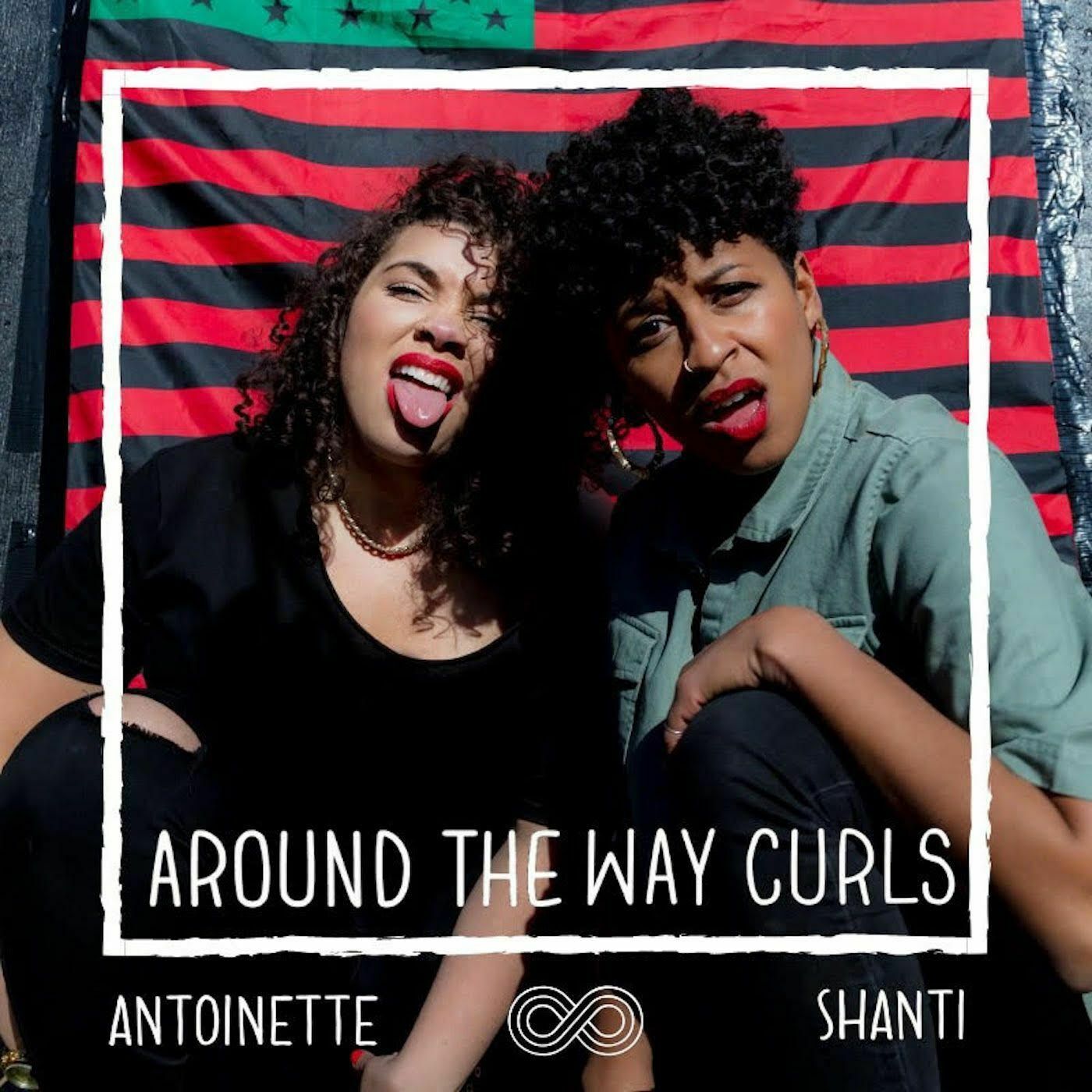
Around The Way Curls
Antoinette Lee & Shanti Mayers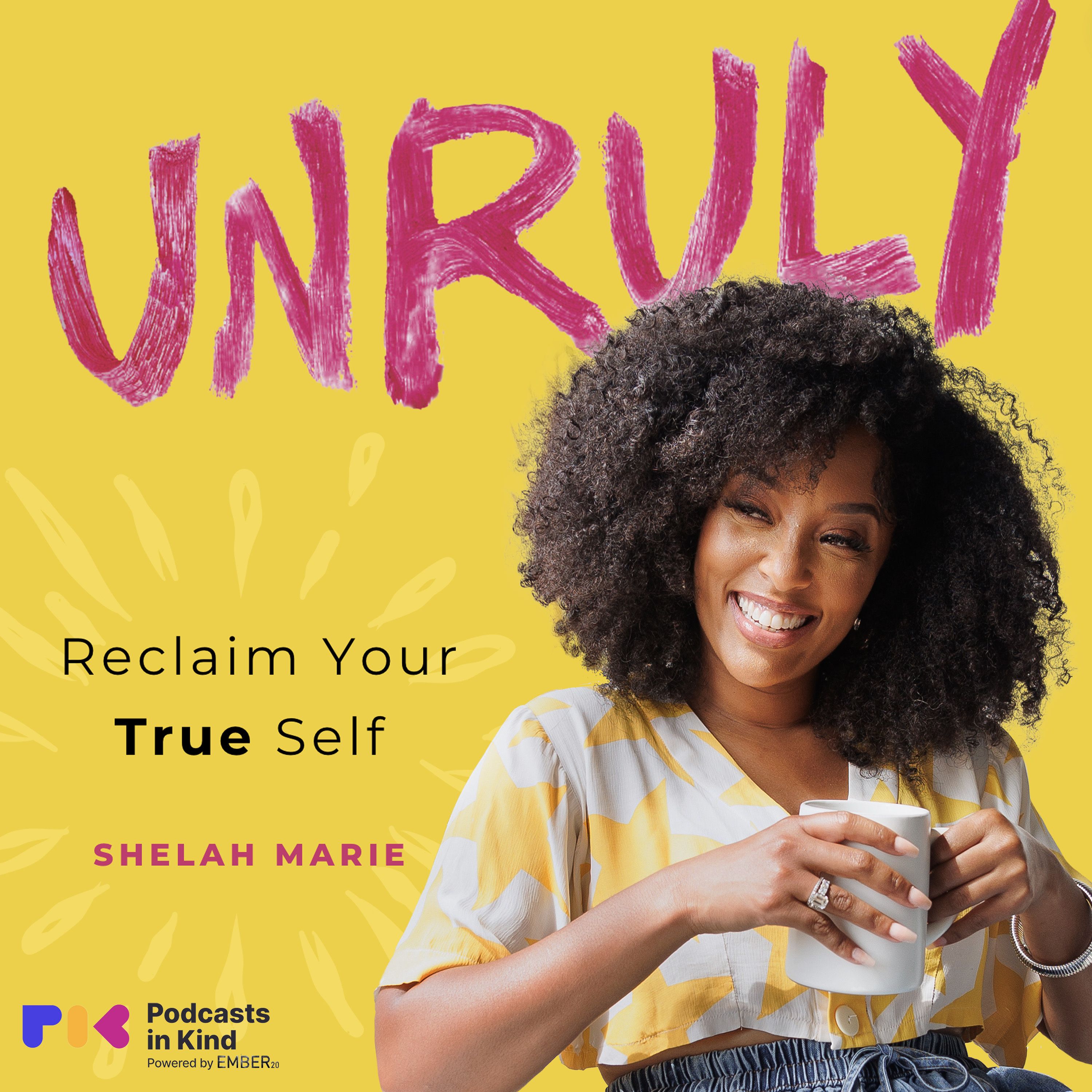
UNRULY WITH SHELAH MARIE
UNRULY WITH SHELAH MARIE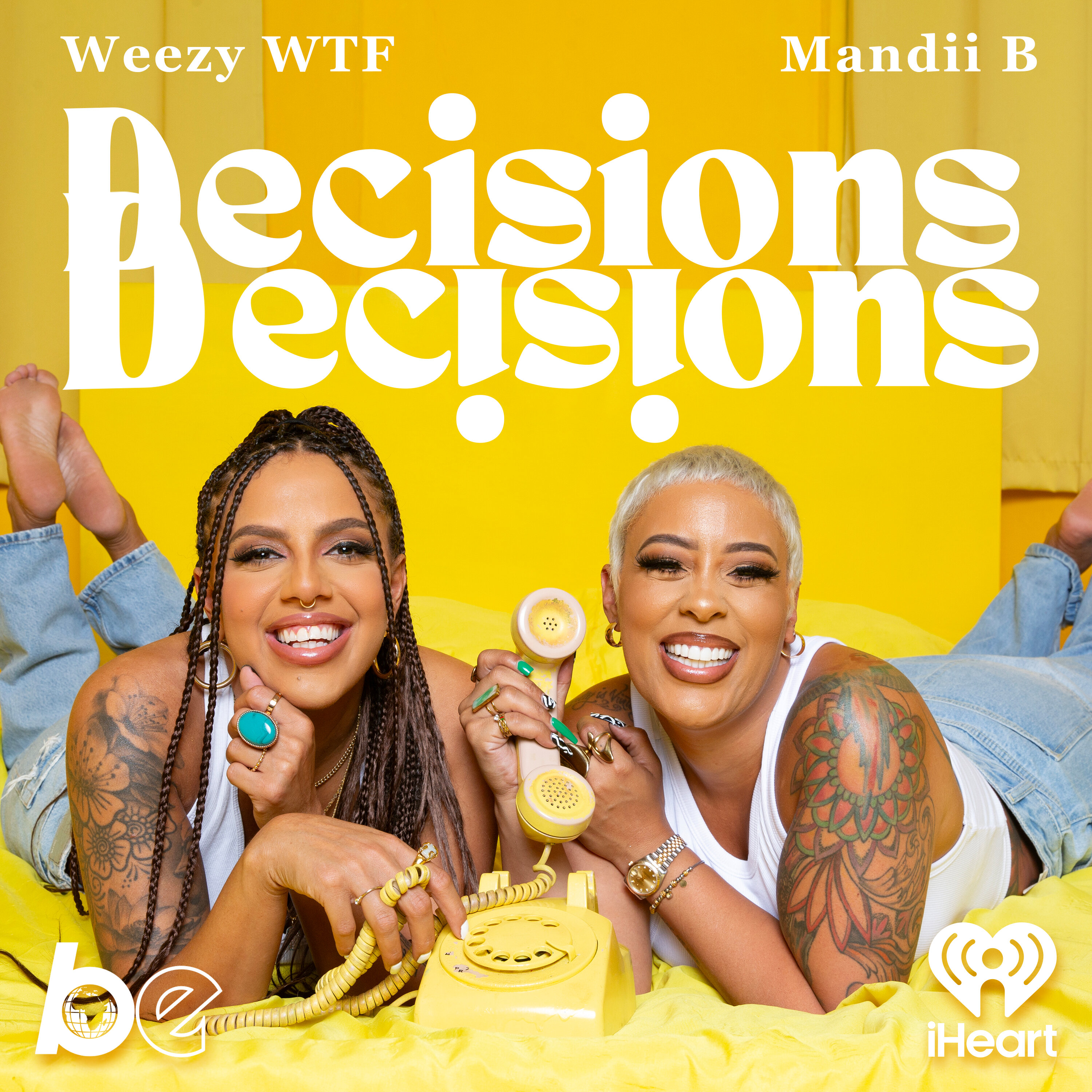
Decisions, Decisions
The Black Effect and iHeartPodcasts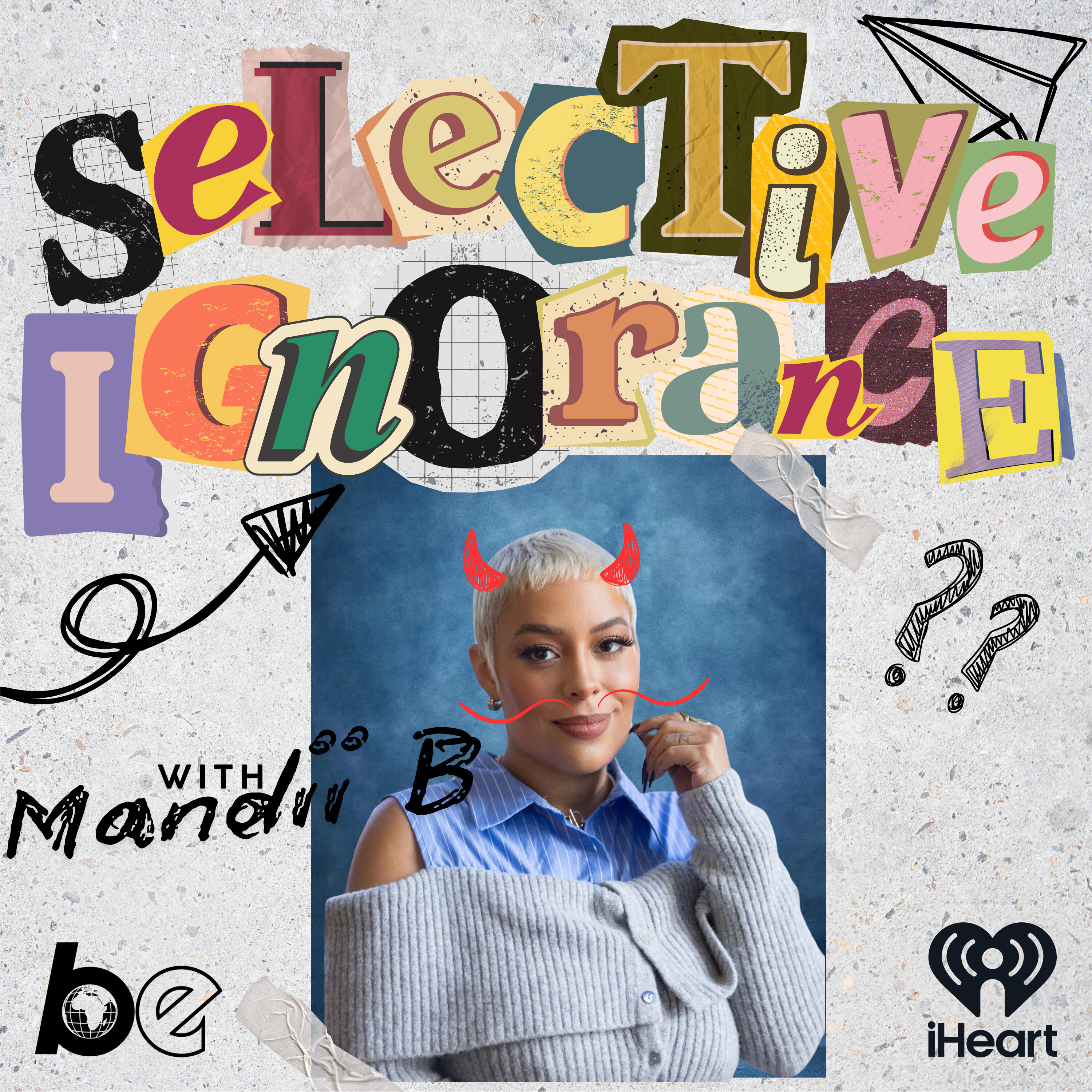
Selective Ignorance with Mandii B
The Black Effect and iHeartPodcasts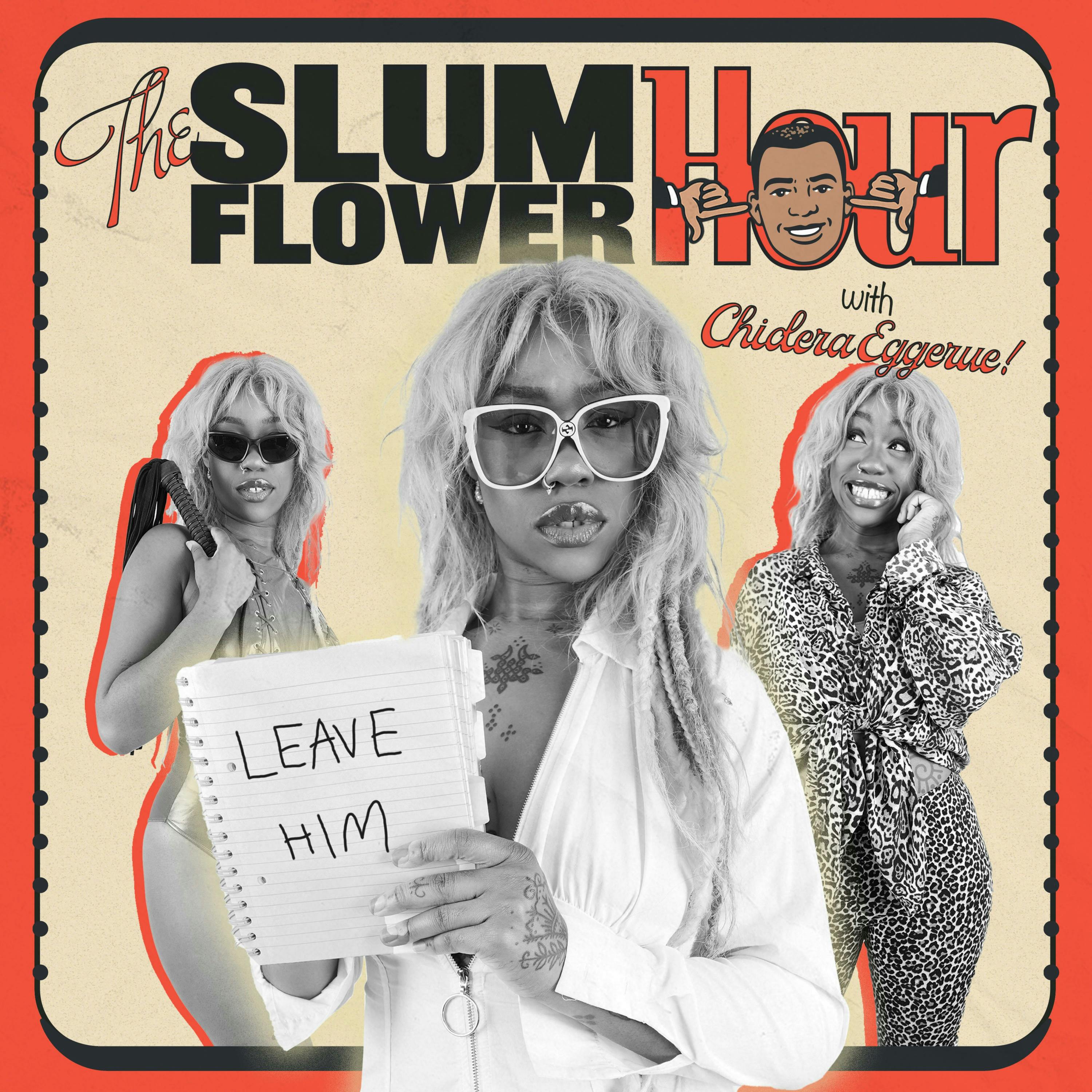
The Slumflower Hour
Chidera Eggerue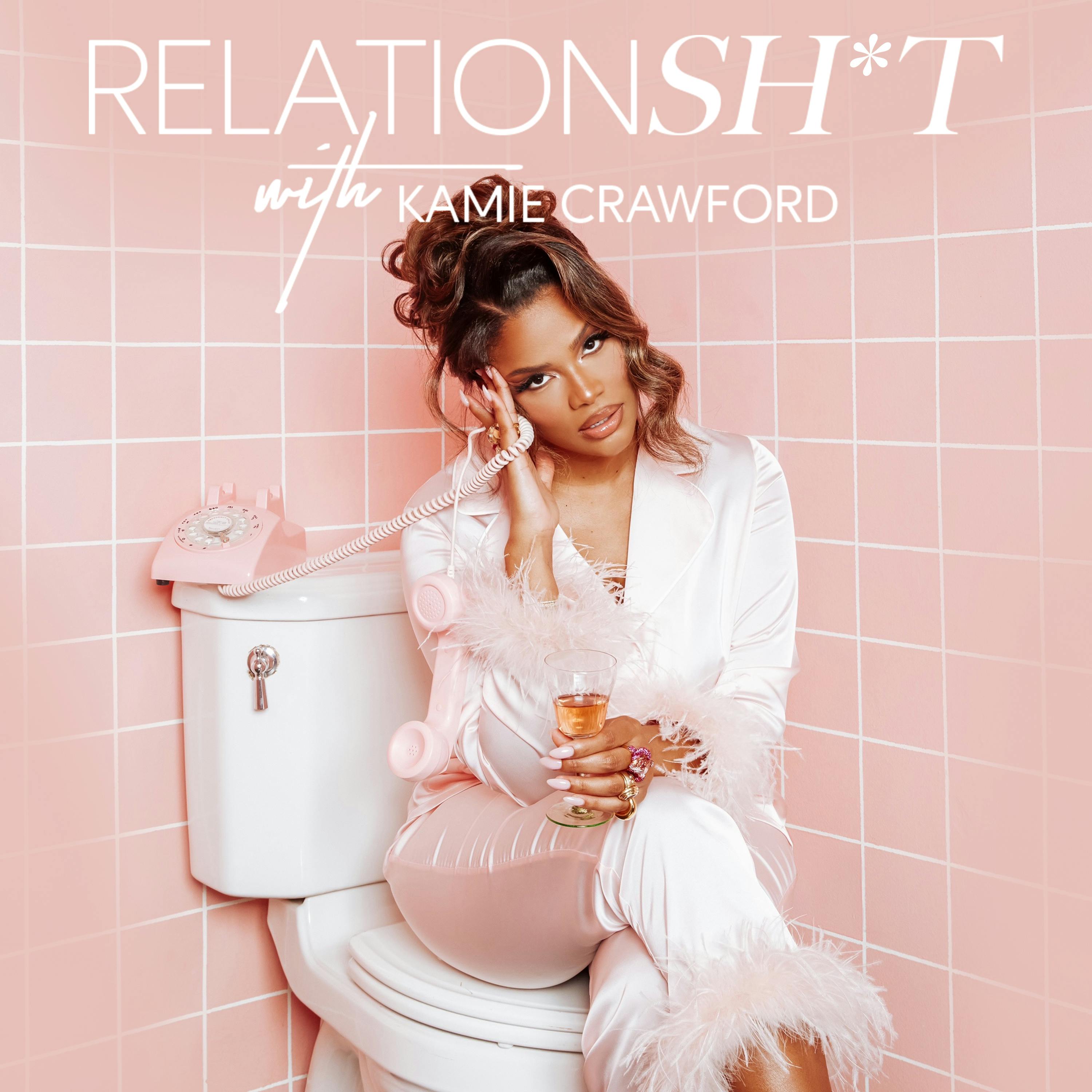
Relationsh*t with Kamie Crawford
Kamie Crawford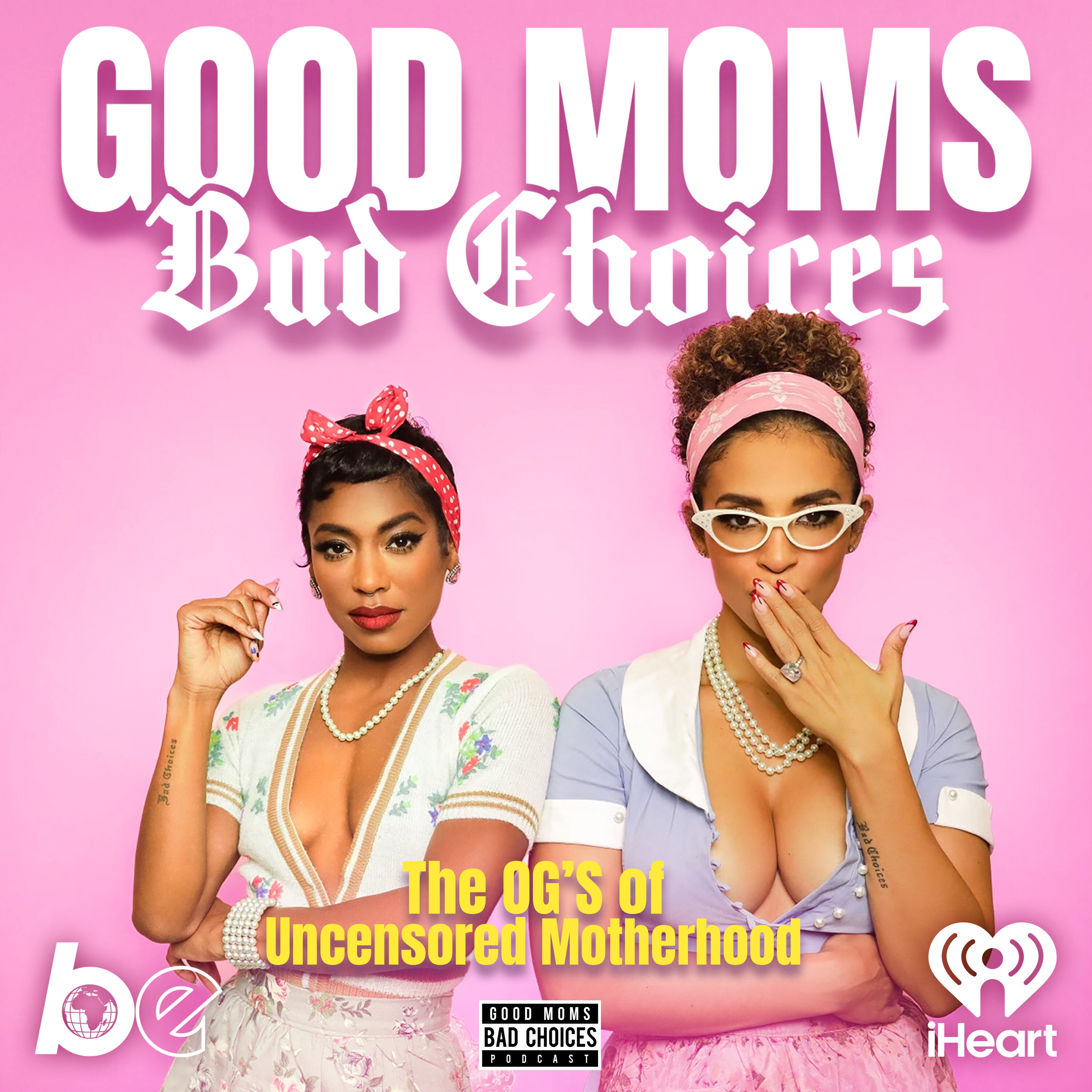
Good Moms Bad Choices
The Black Effect and iHeartPodcasts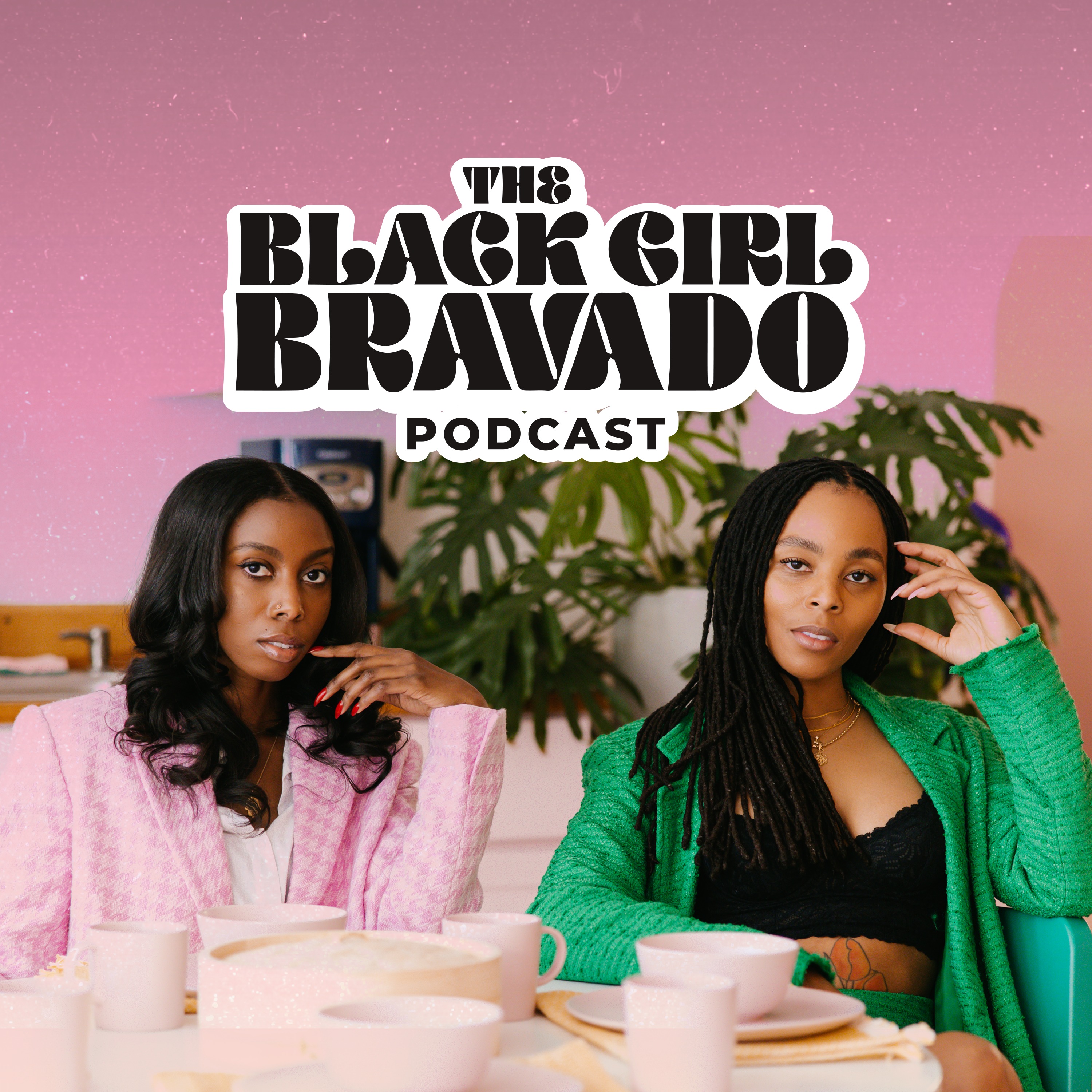
The Black Girl Bravado
Black Girl Bravado
Slay Girl Slay
Ashley Leggs
She's So Lucky
She's So Lucky
SpeakEZ Black Renaissance Podcast
Qadry Harris, M. Div.
Bobo's Void
Bobo, Donavon and MangoUpstream
Upstream
Caribbean Mystics
SpectreVision Radio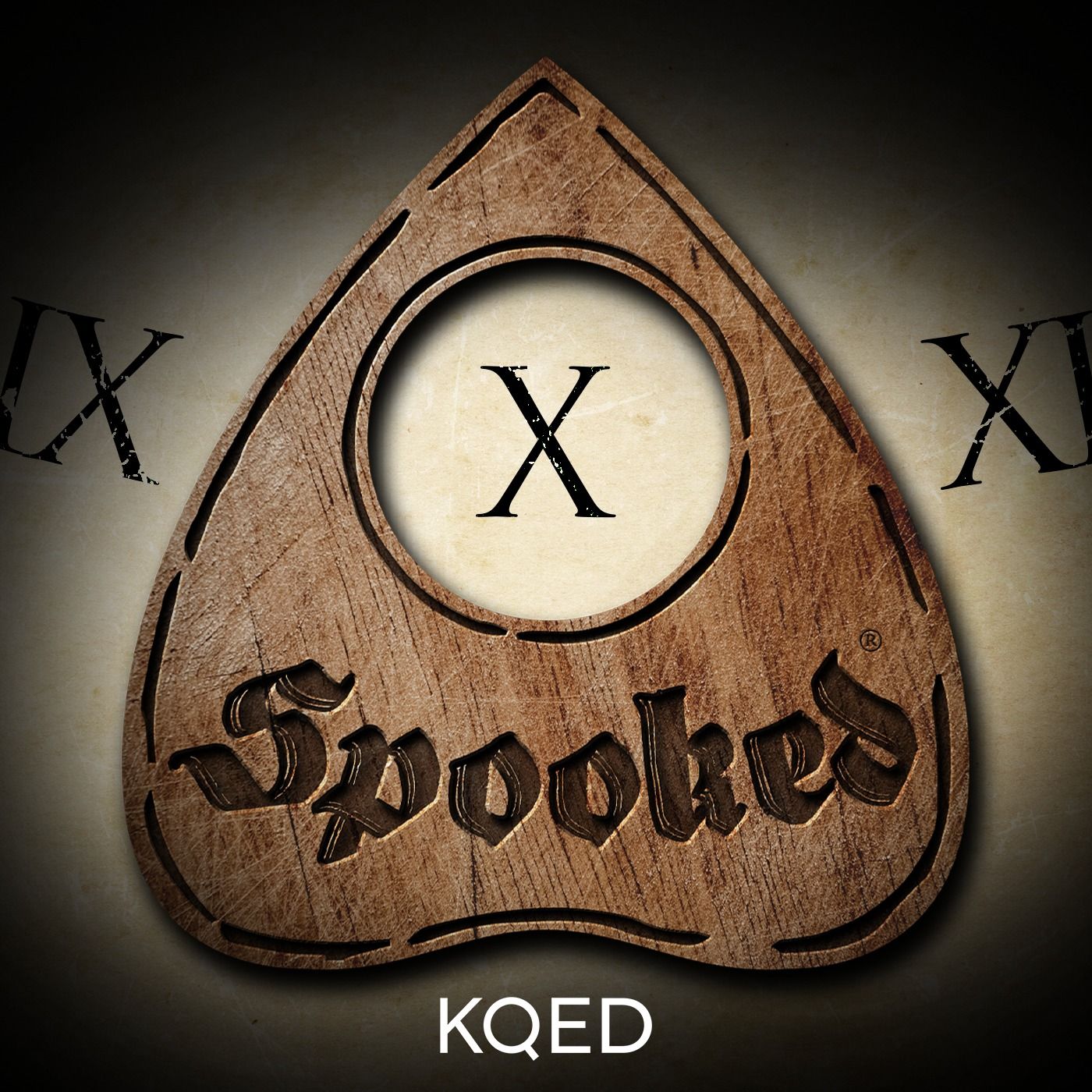
Spooked
KQED and Snap Studios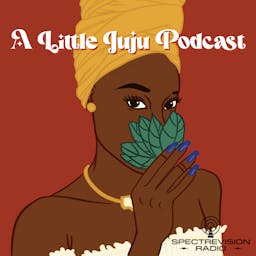
A Little Juju Podcast
SpectreVision Radio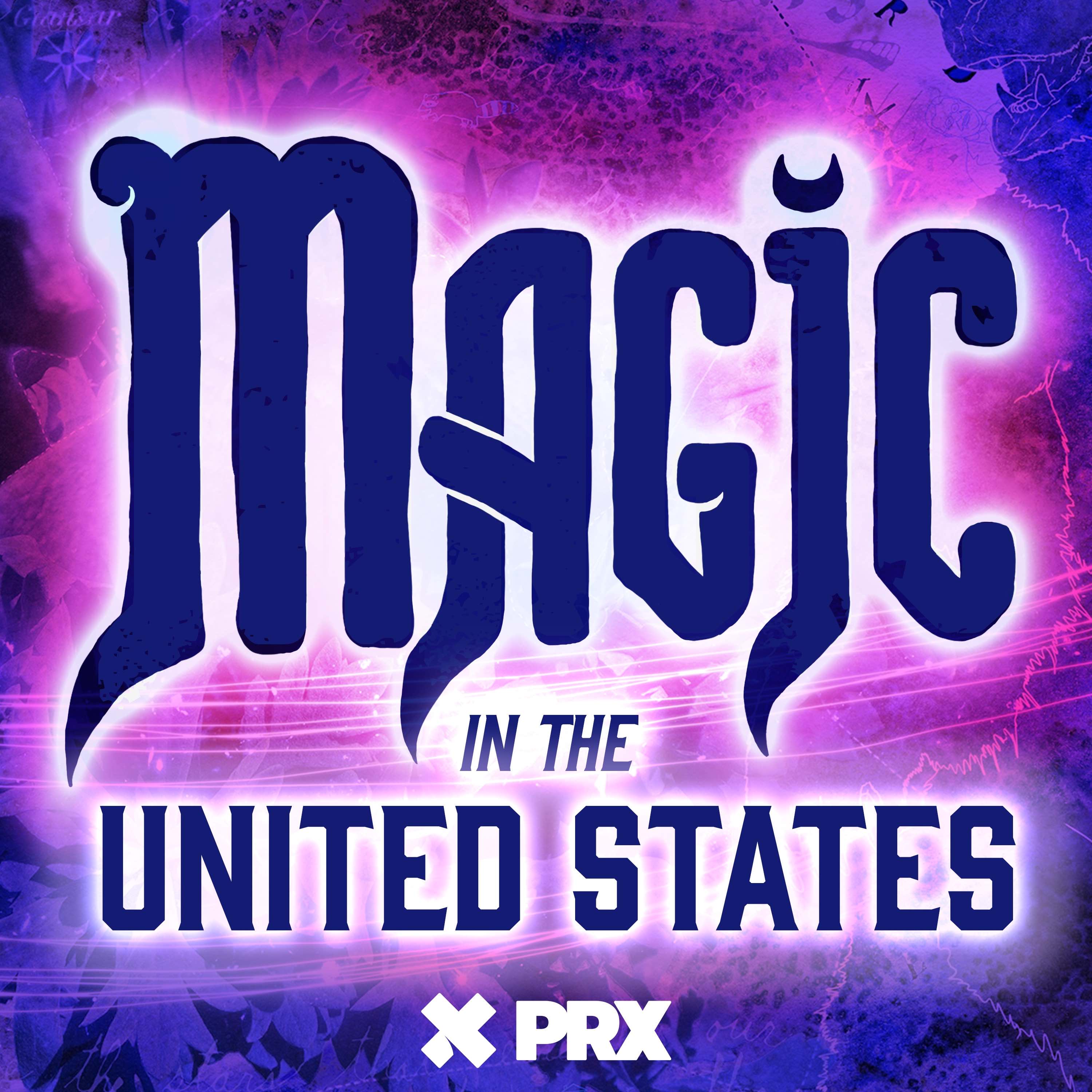
Magic in the United States
Magic in the United States
Sensual Faith Podcast with Lyvonne Briggs
Lyvonne Briggs
Our Ancestors Were Messy
Nichole Hill
CultureCon Uncut
Spotify Studios
Hold For Maintenance
Hold For Maintenance

